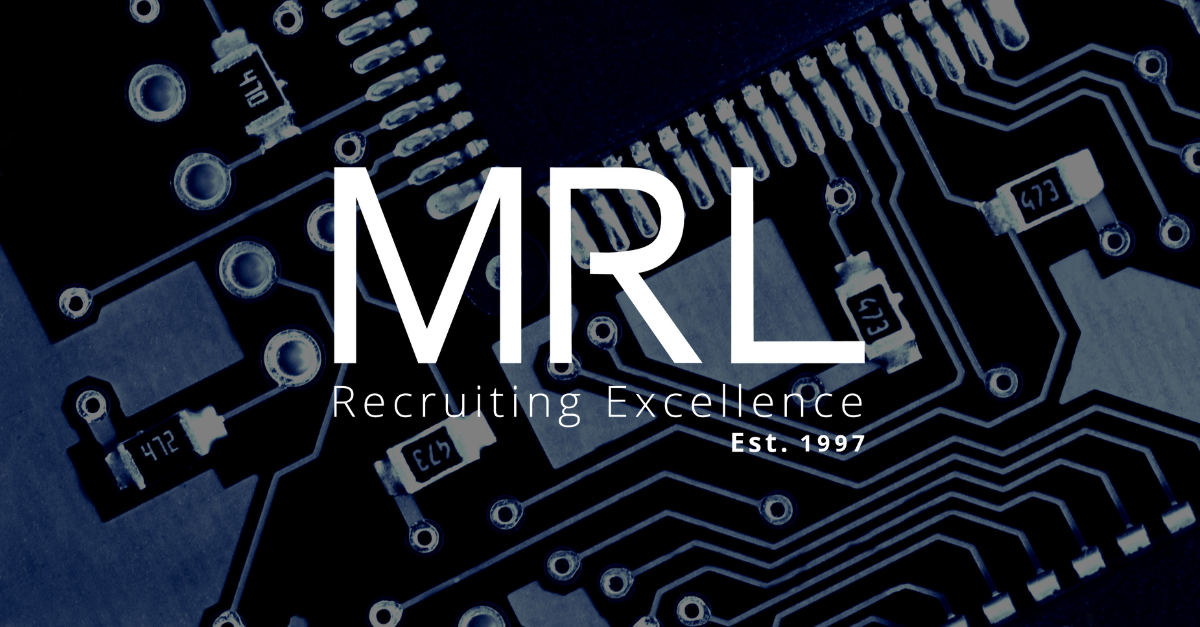Semiconductor Talent Shortage: How Diverse Talent Can Help
31 Jul, 20235 minutesThe semiconductor industry is experiencing a significant talent shortage due to various fact...

The semiconductor industry is experiencing a significant talent shortage due to various factors, such as rapid technological advancements, increased demand for skilled professionals, and a lack of skilled candidates.
This shortage has the potential to hinder industry growth and innovation. In this article, we will discuss how diversity and inclusion can play a crucial role in addressing this ongoing issue.
Diversity in the Semiconductor Industry
So how diverse is the semiconductor industry at present? The short answer: not very diverse at all.
Information obtained from a report by the Semiconductor Industry Association in May 2019 found that Black people only made up 4% of the semiconductor industry, while Hispanics made up 13%. More recent information from Zippia indicates that these statistics remained pretty much consistent in 2021.
In terms of gender, the semiconductor is still not inclusive either. When looking specifically at semiconductor engineers, women only accounted for 10.7% of these professionals. And when looking at tech jobs in a more general sense, women only account for 26.7% of the group, according to Zippia.
How Diversity & Inclusion Can Help Combat the Semiconductor Talent Shortage
Diversity and inclusion are essential for the success of any industry, including semiconductors. By embracing diversity in terms of race, gender, ethnicity, and background, companies can foster a culture of innovation and creativity. Diverse perspectives and experiences lead to fresh ideas, problem-solving approaches, and out-of-the-box thinking.
Moreover, inclusion is key to retaining talent and ensuring a sense of belonging. When employees feel valued and included, they are more likely to stay with the company, contribute their best work, and thrive in their roles.
Considering the above and the fact that the semiconductor industry has been facing a significant talent shortage for some time, one would think that more effort would have been put into this. However, the statics show otherwise. To combat this, players in the semiconductor industry will need to implement strategies to achieve this.
Strategies to Assist in Attracting Diverse Talent
To combat the talent shortage, semiconductor companies can adopt several strategies that prioritize diversity and inclusion ranging from recruitment to job requirements.
Widening Recruitment Efforts & Sources
Companies can expand their reach by actively seeking candidates from diverse backgrounds, including underrepresented groups. By partnering with diverse organizations and educational institutions, they can tap into talent pipelines that were previously overlooked.
Creating Inclusive Job Descriptions & Requirements
Companies should carefully craft job descriptions to attract a broader range of candidates. Avoiding gendered or biased language and focusing on essential skills and qualifications can help create a more inclusive hiring process.
Establishing Partnerships
Collaborating with organizations and institutions that focus on promoting diversity in STEM fields can provide access to a more diverse talent pool. Building strong partnerships can lead to mutual benefits and help overcome the talent shortage.
Barriers & Challenges in Attracting & Retaining Diverse Talent
Attracting and retaining diverse talent in the semiconductor industry can be challenging due to several barriers and obstacles.
Lack of Representation & Inclusion
The underrepresentation of certain demographics, such as women and minority groups, in the semiconductor industry, creates a barrier to attracting diverse talent. The lack of visible role models and mentors can discourage individuals from pursuing careers in the field.
Unconscious Bias & Stereotypes
Unconscious bias can influence hiring decisions and contribute to the perpetuation of stereotypes. Assumptions about certain groups' abilities or interests may hinder opportunities for diverse talent to enter and thrive in the industry.
Limited Outreach & Recruitment Efforts
Inadequate outreach and recruitment strategies aimed at diverse communities can result in a limited pool of diverse candidates. Companies need to actively engage with diverse educational institutions, communities, and organizations to expand their talent pipeline.
Inclusive Workplace Culture
A lack of inclusivity and non-diverse workplace culture can create an unwelcoming environment for underrepresented groups. Companies must foster an inclusive culture that values diversity, provides equal opportunities, and supports the growth and advancement of all employees.
Lack of Representation in Leadership Positions
Limited representation of diverse talent in leadership positions can discourage others from pursuing careers in the industry. It is crucial to have diverse leaders who can serve as role models and advocate for inclusion and diversity initiatives.
Skill Development & Educational Opportunities
Limited access to educational resources and opportunities can create barriers for diverse talent to acquire the necessary skills for the semiconductor industry. Bridging the gap through educational programs, scholarships, and mentorship can help overcome this challenge.
To address these barriers and challenges, semiconductor companies need to prioritize diversity and inclusion initiatives, develop comprehensive recruitment strategies, foster inclusive workplace cultures, and provide equal opportunities for career advancement. By actively addressing these challenges, the industry can create a more diverse and vibrant talent pool, fostering innovation and driving sustainable growth.
How AI Might Alleviate the Semiconductor Talent Shortage
The semiconductor industry is facing a talent shortage, but one potential solution lies in the power of Artificial Intelligence (AI). Here are some ways AI can help the semiconductor industry combat its talent shortage.
Enhanced Recruitment & Candidate Screening
AI can streamline and automate the recruitment process, enabling companies to efficiently identify and evaluate potential candidates. AI-powered algorithms can analyze resumes, assess skills, and match candidates with job requirements, saving time and effort in the initial screening phase.
Skill Development & Training
AI can support skill development initiatives by providing personalized and adaptive learning experiences. Machine learning algorithms can analyze individual learning patterns and recommend targeted training programs, helping individuals upskill or reskill to meet the demands of the semiconductor industry.
Predictive Analytics for Talent Management
AI-driven analytics can provide insights into workforce trends, identifying patterns and predicting future talent needs. This helps companies proactively address the talent shortage by strategically planning recruitment efforts, identifying skill gaps, and implementing targeted retention strategies.
Intelligent Automation for Routine Tasks
AI can automate repetitive and mundane tasks in semiconductor manufacturing and testing processes. This frees up human resources to focus on more complex and strategic work, enabling companies to achieve higher productivity and efficiency with the available talent.
Data-driven Talent Analytics
AI can analyze vast amounts of data related to talent performance career trajectories, and employee satisfaction. This data-driven approach helps companies identify factors that contribute to talent attrition and make informed decisions to improve employee retention and engagement.
Ethical Considerations and Bias Mitigation
When implementing AI in talent management, it is crucial to address ethical considerations and ensure fairness. AI algorithms should be designed to minimize bias in recruitment, performance evaluation, and promotion decisions, promoting diversity and inclusion in the workforce.
By leveraging AI technologies, the semiconductor industry can optimize its talent acquisition, development, and management processes. AI-driven solutions enable companies to identify and nurture talent, improve productivity, and address the talent shortage more effectively, ultimately fostering innovation and growth in the industry.
Final Thoughts on Semiconductor Talent Shortage & Diversity
The semiconductor industry can overcome the talent shortage by embracing diversity and inclusion. By actively seeking diverse talent, fostering an inclusive culture, and implementing best practices, companies can tap into untapped potential, drive innovation, and secure a competitive edge in the industry. Embracing diversity is not only the right thing to do but also a strategic imperative for the long-term success and sustainability of the semiconductor industry.
Interested in Pursuing a Career in this Area?
Are you considering a career in the semiconductor industry? We can help you. At MRL, we specialize in collaborating with prominent Semiconductor companies and key players within the semiconductor field. Whether you're seeking your next career challenge or exploring exciting job opportunities in this rapidly evolving industry, our dedicated team of recruiters is committed to supporting you throughout the entire process. Get in touch with us today and discover how we can assist you in achieving your professional aspirations.



